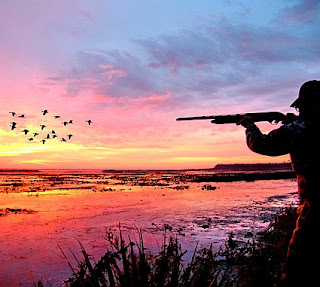Once there were a group of medical professionals who went duck hunting. It was consisted of an internist, a psychiatrist, a surgeon, and a pathologist.
The internist was up first and takes aim. A duck flies by. He looks up and thinks, "hmm... could it be a goose, a gander, a duck? how about a swan? an eagle, a hawk? No! It is not likely but still possible. What about another waterfowl? Hmm..." After a moment, the duck was out of the range in one breath.
It was now the psychiatrist's turn. Five seconds later, a slew of ducks flew by. His thoughts were like this - "there is a duck - I know it - but does the duck know that I know that it's a duck?" A few seconds later, this duck disappears.
The surgeon was up next and takes aim. Before a bird was even clearly in sight, he shot his gun. ... It was a loud BANG! In the distance, something dropped from the sky. The surgeon turns to the pathologist and says "Go tell me what that is".
Side note:
There was an anesthesiologist who was invited to this event and told everyone: "I would rather not go. If you kill a duck, you'll all blame me at the end. ..."
Epilogue
It was the pathologist's turn to shoot. For the last five minutes, a heavy wind have been blasting through the terrain from left to right. After looking at his watch, he quietly checked on the wind direction and speed again and began to wait. 15 minutes later, the wind slowly died.
The pathologist walked 25 feet to the left of their location, looked at his watch and waited for the next thirty minutes while his party of hunters were silently watched him.
A light breeze slowly began to blow from left to right again. ... The pathologist blew his duck call thrice and positioned himself in a ready posture behind the tall grass. He stood silently still, breathing deeply while quietly focusing his attention on the far right side of the horizon.
Within five seconds, two flying ducks immediately appeared from the far right side of the horizon. The breeze immediately became stronger and immediately slowed down their flight's momentum. Within a split second, he exhaled, pulled the trigger twice and successfully shot both ducks.
Hrs before their gathering, the pathologist studied the configuration of the hunting terrain by focusing his time on knowing the climate for that day, the daily and seasonal wind patterns, the different types of flying birds, the flight tendencies of each bird (esp. the ducks), the best vantage point and other unique datapoints.
Regardless of the situation, the successful strategists usually utilized all of the relevant information to their advantage. The Art of War and The Six Secret Teachings referred this action as a part of the strategic power analogy. We humorously referred to it as "The Compass Spin."
Comments From the Compass Desk
Ask yourself, which profile describes you? ... Using the medical analogy, are you the internist (the guesser who is focused on getting the reductive answer), the psychiatrist (the deep thinker who ponders on a situation and occasionally does not make the prompt decision), the surgeon (the high-end gambling expediter who does not know the particular end in the mind), the anesthesiologist (another high-end strategist who does not like to make risky decisions) or the pathologist (the person who precisely knows the hows and the whys of any situation before making the timely move)? Or are you a combination of any of those five profiles?Look around you. There are many decision makers who have behaved in those modes. Can you connect with them?
The Final Point
Before executing your grand process of ready, aim and fire, assess your setting, position yourself ahead of the situation and influence your target with timely execution.
# # #



No comments:
Post a Comment